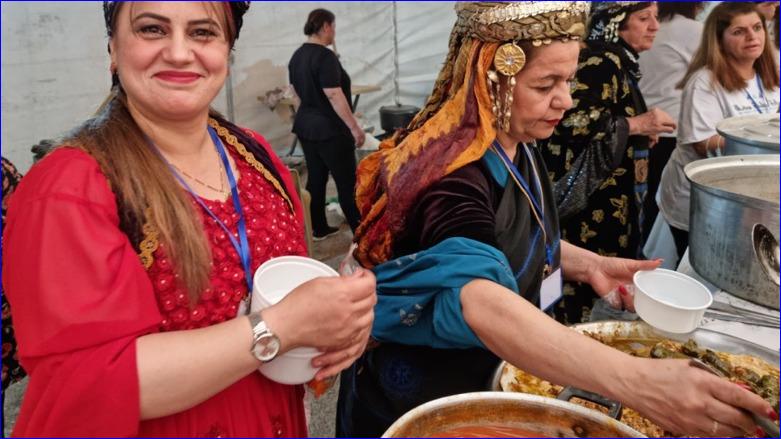Thursday was the last day of the three-day second Syriac Heritage Festival organized by the General Directorate of Syriac Culture and Arts in Erbil.
Many people attended the festival despite a heavy dust storm to enjoy the traditional food, dances, and music.
The festival included a heritage bazaar with traditional Syriac, Aramean, Assyrian, and Chaldean, costumes and handmade products.
The festival celebrated the ancient Assyria and Babylonian New Year Akitu (Akito), which takes place at the start of April.
The Akitu festival, celebrated by the Assyrians, Syriacs, Arameans, and Chaldeans, dates back over 6,000 years.
Assyrians also celebrated Akitu in Duhok on Apr. 1.
Muhtaz Nouh Farro, originally from Nineveh’s Bartella, at a stall makes art by wood burning. He came to Erbil in 2014 from Nineveh after fleeing ISIS.
“I had participated before in the Syriac Heritage Festival. But due to the coronavirus situation, it was not held for two years,” he said. “I was at home for most of the time during the pandemic, so I worked on many different projects.”
“I could produce these woodworks, but I could not present them anywhere,” he added. “Therefore, the festival was a good opportunity to showcase my products.”
Farro explained that the festival celebrates the coming of spring, the “Assyrian Babylon New Year.”
Faeze Ayas Yaqoub, dressed in traditional clothes, is a member of the Directorate of Syriac Heritage.
“The festival introduces the heritage of the Syriac, Chaldean, and Assyrian people,” she said. “The Chaldean Babylonians are ancient Iraqi people. The costumes showcased here represent all the different people of Iraq. Clothes, food, or anything related to our heritage are exhibited in this festival.”
“There are also musical ensembles who perform the songs of different participant groups in the festival.”
Yaqoub also said Ankawa was chosen for the festival since it is known as the “city of brotherhood as its diverse communities continue to live together in peace.”
The festival was concluded with live music and traditional Assyrian dances.
http://www.aina.org/






